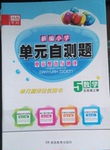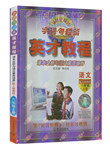题目内容
It was Saturday when the entire summer world was bright and fresh. Tom looked at the fence, which was long and high, feeling all enthusiasm leaving him. He dipped his brush into the whitewash before moving it along the top board of the fence. He knew other boys would arrive soon with all minds of interesting plans for this day. As walking past him, they would tease him for having to work on a beautiful Saturday—which burnt him like fire.
He, putting his hands into his pockets and taking out all he owned with the expectation of letting someone paint, found nothing that could buy half an hour of freedom. At this dark and hopeless moment, a wonderful idea occurred to him, pouring a great bright light into his mind. He took up his brush and continued to work pleasantly with calm and quietness.
Presently, Ben Rogers came in sight—munching an apple and making joyful noises like the sound of a riverboat as he walked along. Tom went on whitewashing, paying no attention to the steamboat. “Hello!” Ben said, “I’m going swimming, but you can’t go, can you?”
No answer. Tom moved his brush gently along the fence and surveyed the result. Ben came nearer. Tom’s mouth watered for Ben’s apple while he kept painting the fence.
Ben said, “That’s a lot of work, isn’t it?”
Tom turned suddenly saying “Here you are! Ben! I didn’t notice you.”
“I’m going swimming,” Ben said. “Don’t you wish you could go? Or would you rather work?” Tom said, “Work? What do you mean ‘work’?”
“Isn’t that work?” Tom continued painting and answered carelessly, “Maybe it is, and maybe it isn’t. All I know is it suits Tom Sawyer.”
“Do you mean that you enjoy it?”
“I don’t see why I oughtn’t to enjoy it.”
“Does a boy have a chance to paint a fence frequently” said Tom.
Ben stopped munching his apple.
Tom moved his brush back and forth—stepped back to note the effect—added a little paint here and there. Ben watched every move, getting more and more interested, more and more absorbed. After a short time, he said, “Tom, let me whitewash a little.”
Tom seemed to be thinking for a moment before he said, “No, Aunt Polly wants this fence to be perfect. If it was the back fence, maybe you could do it. But this fence beside the street is where everybody can see it. It has to be done right.”
“Oh, come on, let me try. I’ll be careful. Listen, Tom. I’ll give you part of my apple if you let me paint.” “No, Ben, I’m afraid—” “I’ll give you all the apple!”
Tom handed the brush to Ben with unwillingness on his face but alacrity in his heart. While the riverboat worked and sweated in the hot sun, Tom, an artist sat in the shade close by, munching his apple, and planning how he could trick more of the boys.
Before long there were enough boys each of whom came along the street; stopped to laugh but soon begged to be allowed to paint. By the middle of the afternoon, Tom had got many treasures while the fence had had three layers of whitewash on it. If he hadn’t run out of whitewash, he would have owned everything belonging to the boys in the village.
Tom said to himself that the world was not so depressing after all. He had discovered a great law of human action: in order to make a man cover a thing, it is only necessary to make the thing difficult to attain.
1.By using “Tom continued painting and answered carelessly”, the author shows Tom ______ when he was talking to Ben.
A. made mistakes B. damaged things
C. was natural D. wasn’t concentrating
2.The underlined word “alacrity” in the last but two paragraph most probable means “______”.
A. kindness B. discouragement
C. sympathy D. eagerness
3.Which of the following is TRUE according to the passage? ________
A. Tom did not want to go swimming at all
B. Tom was asked to help Aunt Polly paint the fence
C. Tom did not get along well with his friends
D. Tom was very busy that Saturday afternoon.
4.We can draw a conclusion from the last paragraph that _______.
A. forbidden fruit is sweet.
B. a friend in need is a friend indeed.
C. all good things must come to an end.
D. a bad excuse is better than none.
1.D
2.D
3.B
4.A
【解析】
试题分析: 本文主要讲一个小男孩Tom本要粉刷篱笆,但Ben经过的时候,Tom假装沉醉在粉刷篱
笆而没注意到Ben,并告诉Ben这是很有乐趣的事情。在Ben要求尝试的时候Tom假意不肯,于是
Ben的好奇心被引起,最后以苹果交换,Tom终于同意让Ben粉刷篱笆的故事。
1. 推理题。通读文章可知Tom这样做是想表现的很自然,以引起Ben的好奇心,最后引诱Ben上钩。故选D.
2. handed the brush to Ben with unwillingness on his face but alacrity in his heart。实际上Tom成功的诱骗了Ben帮他干活,表面上很不情愿,实际上心里很急切,说明Tom很狡猾,故选D.
3. 细节题。根据文章Aunt Polly wants this fence to be perfect. If it was the back fence, maybe you could do it.是,Aunt Polly要求Tom帮助他粉刷篱笆,故选B.
4. 总结归纳题。根据最后一段in order to make a man cover a thing, it is only necessary to make the thing difficult to attain.说明在人们看来难以得到的东西都是好的。选项中的A项禁果很甜。意思和这句相符。故选A.
考点:考查故事类短文阅读

 新编小学单元自测题系列答案
新编小学单元自测题系列答案 字词句段篇系列答案
字词句段篇系列答案